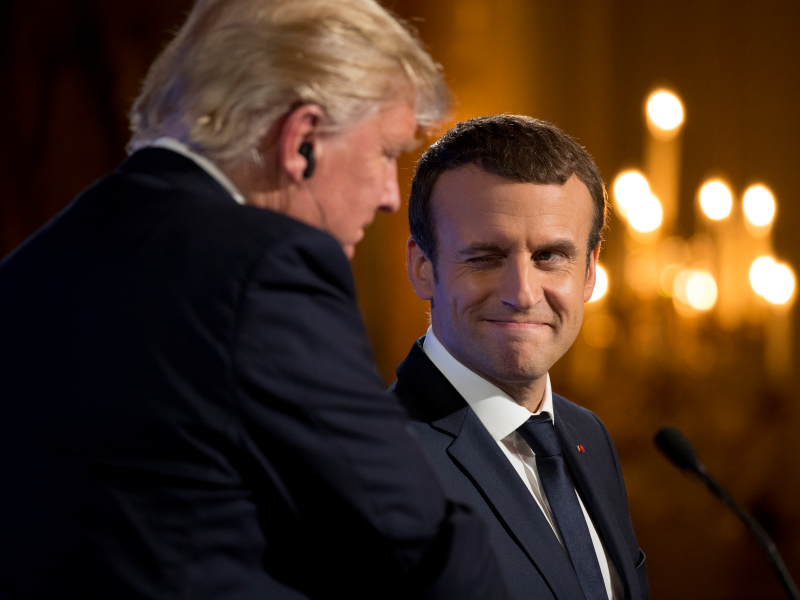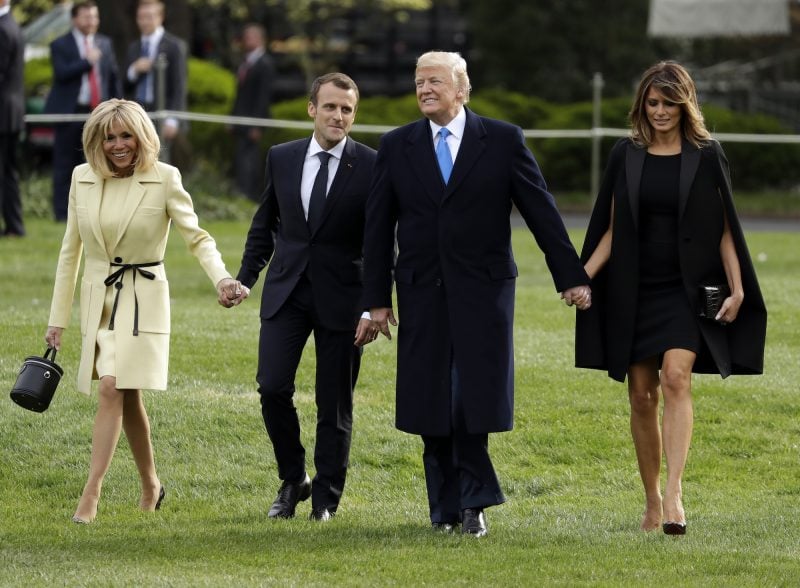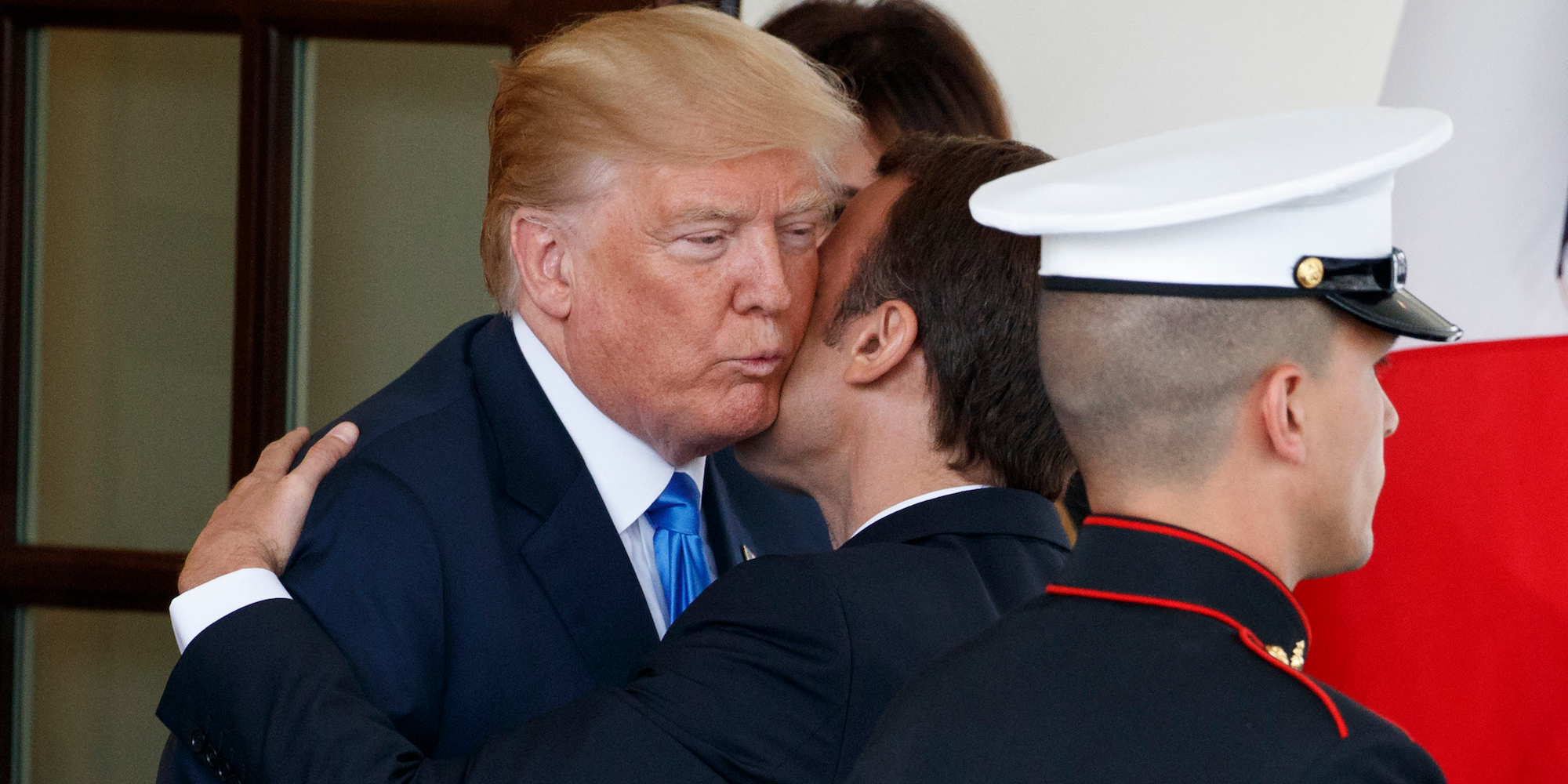- US President Donald Trump and French President Emmanuel Macron’s friendship has blossomed in the past year.
- Recent victory with Syrian airstrikes set an optimistic stage for a constructive official state visit that starts Monday.
- But experts caution that the two leaders’ stark contrast between political objectives could be too large of an obstacle for future policy partnerships.
French president Emmanuel Macron arrived Monday as the first world leader President Donald Trump invited for a state visit.
Friendship bloomed between the two leaders in the year since Macron’s election victory, including dinner at the Eiffel Tower, an epic handshake battle, and publicly gushing about each other.
Macron ran as part of a centrist party of his own creation with globalist goals, and has grown increasingly close with Trump despite their fundamental policy differences.
A cheery public image and the successful joint airstrike by the US, Britain, and France on Syria’s government forces last week in response to the chemical attack set an optimistic stage for the state visit and future partnerships in policy. But the reality of future potential could be overblown, Brookings Institution foreign policy fellow Célia Belin warned.
"There are areas where the French/American cooperation can be strong and immediate, especially when they share a common, precise goal like in the small, punitive strikes on Syria," Belin said. "But overall they won't have the same approach on a number of things."
Macron founded the République en Marche, or the Republic on the Move, to provide France with a reformist alternative to far-right parties that share Trump's suspicion toward globalism and favoring of closed borders.
"Macron was just talking last week about how there's a civil war in Europe between a liberal democracy and authoritarianism," Ian Bremmer, president of geopolitical-risk firm Eurasia Group, told Business Insider. "If he was being honest about the US, he'd say the same thing and Trump would be on the other side."
The roots of their bromance

Trump and Macron's strong relationship is due in no small part to their common backgrounds, said former US diplomat and Global Situation Room President Brett Bruen.
Macron rose to prominence in French banking, an uncommon path to the presidency comparable to Trump's roots in real estate.
"He understands intrinsically this kind of language that Trump needs to hear," Bruen said. "Trump needs to hear profit and loss, he needs to hear return on investment."
After another tough week of legal troubles facing his personal lawyer, Trump insulated the state dinner from his recent troubles, breaking precedent by excluding Democrats and the media from the guest list.
Their personal relationship is at the center of Macron's state visit, as White House Press Secretary Sarah Huckabee Sanders said ahead of the French president's arrival Monday, the administration expected an "open and candid discussion because of the relationship they built."
Other world leaders could learn from Macron

Though their personal chemistry is often in the spotlight, it's Trump's high-profile legal troubles that could hinder the kind of progress Macron is hoping for, Bremmer said. Macron notably wants Trump to keep the US in the Iran nuclear deal, which Trump has called "the worst deal ever."
"Trump is under an enormous amount of pressure domestically," he said. "No matter who Trump meets with, his focus is mostly on the investigation. You see that with his tweets, you see that with his statements."
As for their partnership so far, Macron has already succeeded in getting close to the president in a way no other world leader has, Bruen said, and that could serve as an example to other world leaders in how to deal with Trump because of his unique approach to policy.
"It's a model for other world leaders to look at if they want to get things done, not just get along," Bruen said. "They have to find a way to establish that common ground with an unconventional leader - and Trump won't be the only unconventional leader."

